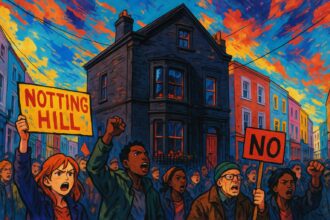Parliamentary battles intensify over Prime Minister Sunak’s contentious Rwanda deportation bill, challenging the UK’s approach to asylum seekers amid cost and efficacy concerns.
The UK is currently witnessing intense debates surrounding the Rwanda deportation bill, spearheaded by Prime Minister Rishi Sunak. The legislation, which seeks to deport asylum seekers to Rwanda, has successfully passed through the House of Commons despite internal opposition and now faces resistance in the House of Lords. Peers are expected to propose further amendments to what is officially known as the Safety of Rwanda bill, aiming to enhance protections for those affected by the proposed deportations. This ongoing parliamentary struggle highlights the bill’s contentious nature, particularly regarding its costs, effectiveness, and the implications for asylum seekers’ rights.
The Government, under Prime Minister Sunak’s leadership, has framed the Rwanda scheme as a necessary measure to deter illegal migration. However, critics, including former Labour Lord Chancellor Charlie Falconer and Labour’s shadow immigration minister Stephen Kinnock, argue the bill lacks sufficient safeguards and evidence supporting its effectiveness. The National Audit Office has also questioned the financial implications of the plan, estimating it could cost taxpayers up to £2 million for the deportation of 300 asylum seekers to Rwanda.
As the debate continues, the outcome of the Lords’ review could significantly impact the bill’s implementation and the UK’s broader immigration policy. This legislative process unfolds amid ongoing public discussions on various topics, including road safety in London and historical interpretations in museum exhibits. However, the focus remains on the Rwanda deportation bill’s fate as Parliament grapples with these complex legal and moral issues.













